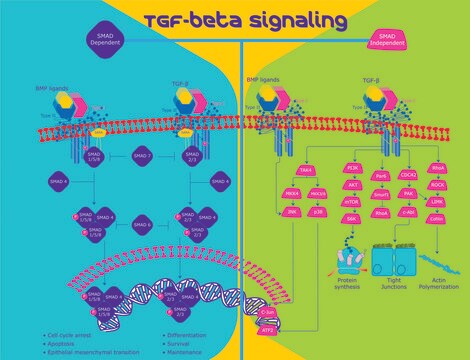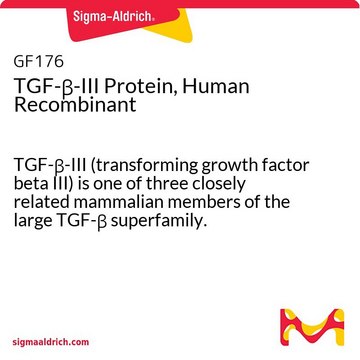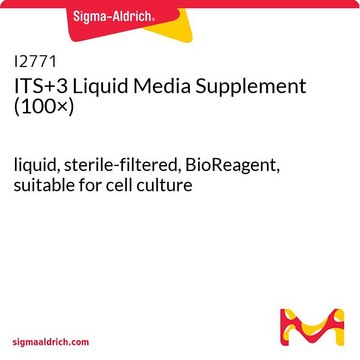T5425
Transforming Growth Factor-β3 human
≥97% (SDS-PAGE), recombinant, expressed in baculovirus infected Sf21 cells, powder, suitable for cell culture
Sinónimos:
hTGF-β3, TGF-β3
About This Item
Productos recomendados
Nombre del producto
Transforming Growth Factor-β3 human, TGF-β3, recombinant, expressed in baculovirus infected Sf21 cells, powder, suitable for cell culture
origen biológico
human
Nivel de calidad
recombinante
expressed in baculovirus infected Sf21 cells
Ensayo
≥97% (SDS-PAGE)
Formulario
powder
potencia
0.01-0.09 ng/mL ED50/EC50
calidad
endotoxin tested
mol peso
predicted mol wt ~25 kDa
envase
pkg of 2 μg
condiciones de almacenamiento
avoid repeated freeze/thaw cycles
técnicas
cell culture | mammalian: suitable
impurezas
<0.01 EU/μg
Nº de acceso UniProt
temp. de almacenamiento
−20°C
Información sobre el gen
human ... TGFB3(7043)
¿Está buscando productos similares? Visita Guía de comparación de productos
Descripción general
Aplicación
Acciones bioquímicas o fisiológicas
Forma física
Nota de análisis
Código de clase de almacenamiento
11 - Combustible Solids
Clase de riesgo para el agua (WGK)
WGK 3
Punto de inflamabilidad (°F)
Not applicable
Punto de inflamabilidad (°C)
Not applicable
Equipo de protección personal
Eyeshields, Gloves, type N95 (US)
Elija entre una de las versiones más recientes:
¿Ya tiene este producto?
Encuentre la documentación para los productos que ha comprado recientemente en la Biblioteca de documentos.
Los clientes también vieron
Nuestro equipo de científicos tiene experiencia en todas las áreas de investigación: Ciencias de la vida, Ciencia de los materiales, Síntesis química, Cromatografía, Analítica y muchas otras.
Póngase en contacto con el Servicio técnico









